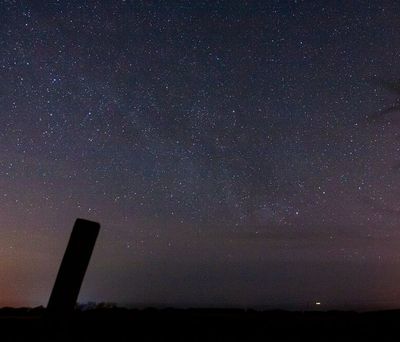After such a dreadful year there was potentially some welcome and exciting news for the whole area, when it was announced on December 8th that the North Yorkshire Moors National Park, along with the Yorkshire Dales National Park, had been successful for applying for the status of International Dark Sky Reserve.
Described by Parks authorities as, “a significant step towards protecting dark skies across much of northern England”, the International Dark-Sky Association (IDA) has granted reserve status to both national parks, an area which covers more than 3,600 square km. The IDA, based in Tucson, Arizona, is the recognised authority on light pollution and the leading organisation combating light pollution worldwide.
Some of the darkest skies in the country are located within the Parks, with large areas of unpolluted night sky. They now join a group of just 16 certified Dark Sky Reserves across the world, including the Breckon Beacons, Cranborne Chase, Exmoor national Park, parts of the South Downs and Snowdonia.
It has taken five years for the two Yorkshire national parks to apply for and achieve Dark Sky Reserve status, in a process that involved submitting light meter readings from various locations whilst satisfying criteria of having at least two-thirds of properties with “dark-sky-friendly lighting”.
A Park’s spokesperson said that ‘Apart from further developing astro-tourism, the designation will help promote the respective areas, events and business, enhance habitats for wildlife and bring increased economic benefit to the local tourist industry. It will also promote the importance of dark sky-friendly lighting, reducing carbon footprints and energy costs for households'.
Since 2016 North Yorkshire has held annual Dark Sky Festivals across the two parks each February, raising the regions profile as a stargazing destination. Since then around 2 million pounds has been contributed to the local rural economy and in 2019 the festival was attended by over 8000 people. There are now over 100 events spread over 17 days, including dine-and-gaze evenings, stargazing safaris.
As you know the WDAS is proud to have supported some of these events over the years and we look forward in continuing our partnerships in the years to come. All we require now are two things; less Covid and more reliable weather. One can potentially be overcome in time for next autumn; the weather is usually in the lap of the gods! Busy times lie ahead.
- Log in to post comments


